Vitamins to Kick In What to Expect and When
Table of Contents
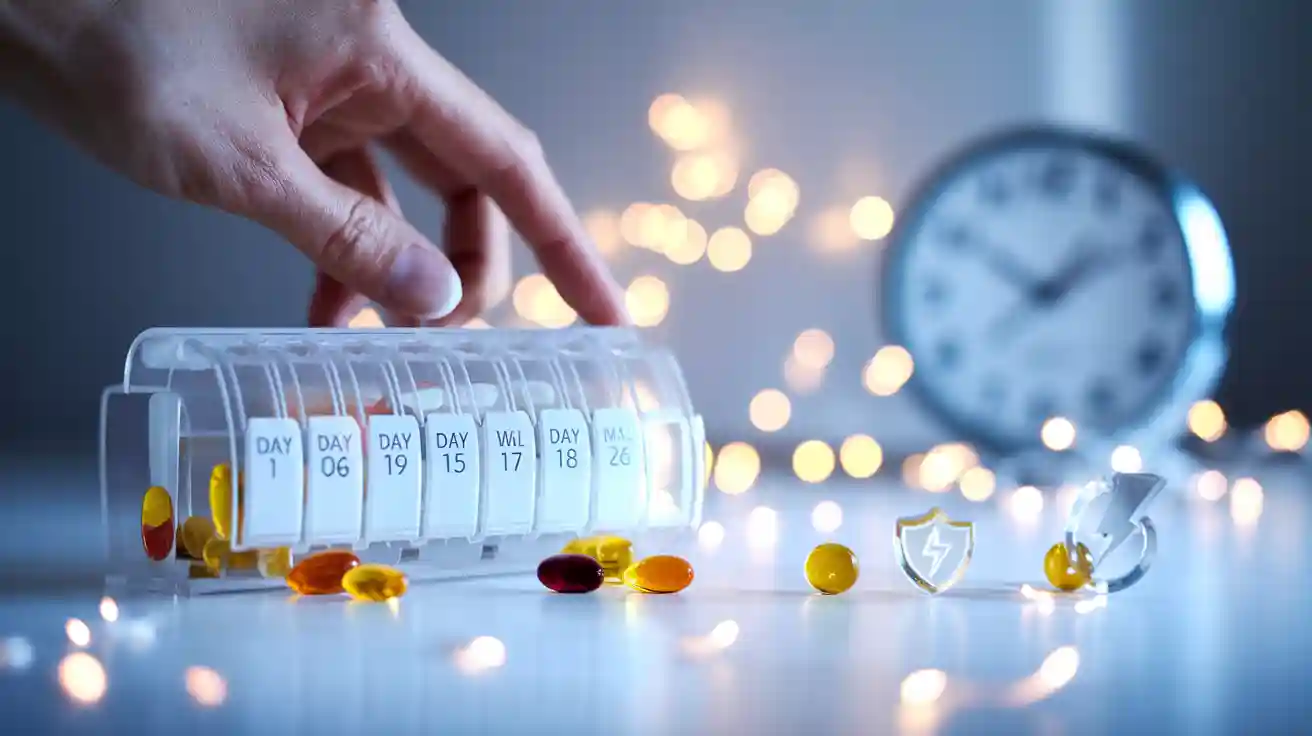
You probably wonder how long does it take for vitamins to work. Water-soluble vitamins, like vitamin C and the B vitamins, often show results in a few days to a couple of weeks. Fat-soluble vitamins, such as vitamins D and E, may take weeks or even months before you feel a difference. Everyone absorbs nutrients differently, so how long it takes vitamins to work can depend on your body. > Want to see Vitamins to Kick In faster? Consistency is key!
How Long Does It Take for Vitamins to Work?
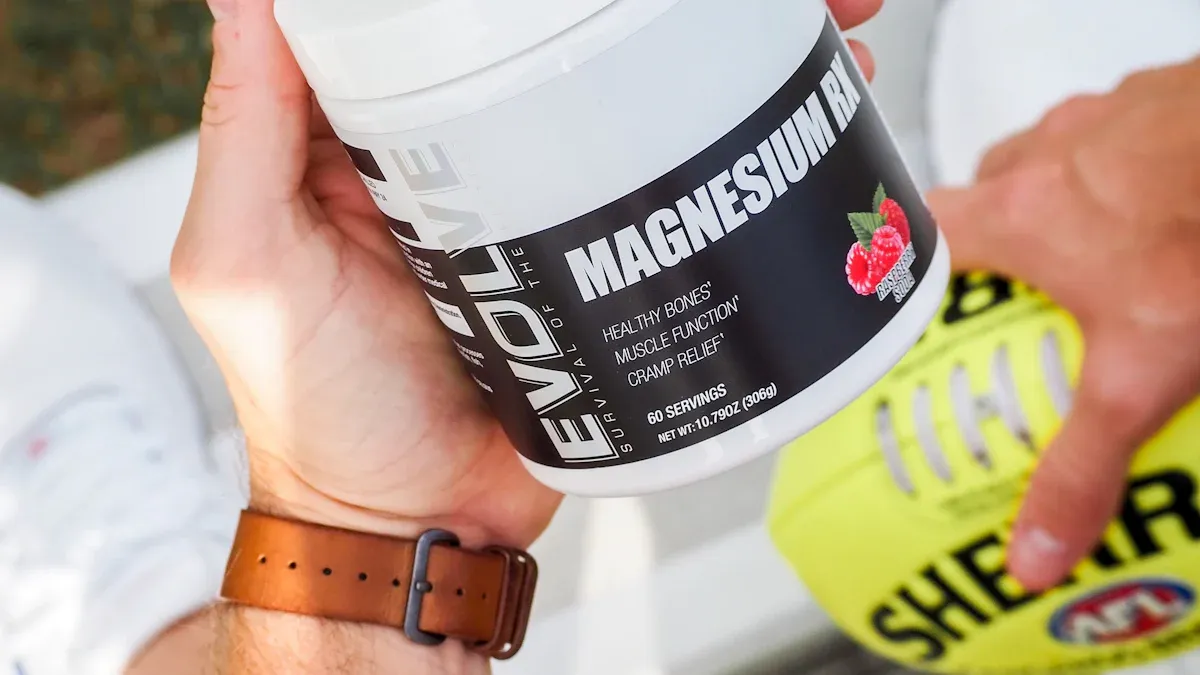
You might ask yourself, “How long does it take for vitamins to work?” The answer depends on the type of vitamin, how your body absorbs it, and your health needs. Some vitamins kick in fast, while others take their time. Let’s break it down so you know what to expect.
Water-Soluble Vitamins
Water-soluble vitamins, like vitamin C and the B vitamins, get to work quickly. Your body absorbs them directly from your small intestine, and you don’t store them for long. You need to take these vitamins regularly because your body flushes out the extra through urine.
- You might notice effects from water-soluble vitamins in just a few days to a couple of weeks.
- If you have a deficiency, you could feel better even faster.
- For example, vitamin C reaches peak blood levels in about 2 to 3 hours after you take it. You may start to feel its benefits, like better immune support or brighter skin, within 1 to 2 weeks.
- Vitamin B12 can take 2 to 3 weeks to improve symptoms like tiredness or low mood, especially if you were low before.
- Vitamin B6 often helps with energy and mood in 1 to 3 weeks.
Here’s a quick look at how your body handles some common water-soluble vitamins:
| Vitamin | What It Does | How Long It Stays in Your Body | Why You Need It Often |
|---|---|---|---|
| B1 (Thiamine) | Helps make energy, supports nerves | Few days (half-life 9-18 days) | Extra leaves in urine |
| B2 (Riboflavin) | Supports energy, acts as antioxidant | Few hours to days | Leaves body quickly |
| B3 (Niacin) | Boosts energy, supports nervous system | Few hours (half-life 20-45 min) | Gone in 24 hours |
| B5 (Pantothenic) | Makes coenzyme A, helps metabolism | About 1 hour | Absorbed and excreted fast |
| B6 (Pyridoxine) | Supports mood, nerves, and metabolism | Stored in muscle for weeks | Still needs regular intake |
💡 Tip: Because your body doesn’t store water-soluble vitamins, you need to take them every day for the best results.
You can see how quickly your body uses and loses these vitamins in this chart:
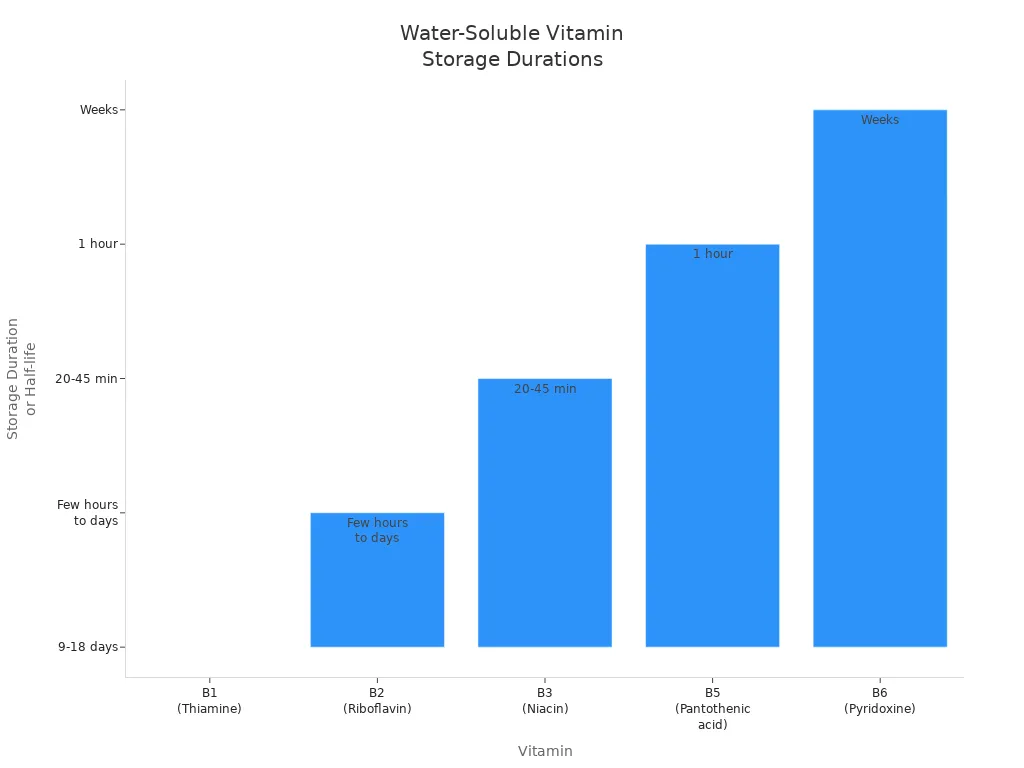
Fat-Soluble Vitamins
Fat-soluble vitamins, like vitamins D, E, A, and K, work differently. Your body absorbs them along with fats from your food. You store these vitamins in your liver and fat tissues, so they stick around much longer.
- You might not feel the effects of fat-soluble vitamins for several weeks or even months.
- For example, if you take vitamin D to fix a deficiency, it usually takes about 6 to 8 weeks of regular supplements to see your blood levels rise. Sometimes, it can take up to 4 months for full benefits.
- Vitamin absorption for these types depends on eating enough healthy fats. If you don’t eat enough fat, your body can’t absorb these vitamins well.
- Health problems that affect fat absorption, like celiac disease or Crohn’s disease, can slow down how long it takes for vitamins to work.
Here’s a table to help you compare how your body handles water-soluble and fat-soluble vitamins:
| Aspect | Water-Soluble Vitamins | Fat-Soluble Vitamins |
|---|---|---|
| Solubility | Dissolve in water | Dissolve in fats |
| Absorption Site | Small intestine, direct absorption | Small intestine, with dietary fat |
| Storage | Not stored; extra leaves in urine | Stored in liver, fat, and muscles |
| Absorption Needs | Less dependent on fat | Needs dietary fat and healthy digestion |
| How Long to Notice Effects | Days to weeks | Weeks to months |
Note: If you want to get the most from fat-soluble vitamins, take them with a meal that has some healthy fat, like avocado or olive oil.
IV Vitamins
IV vitamin therapy gives you vitamins straight into your bloodstream. This method skips your digestive system, so you feel the effects much faster.
- You might notice a boost in energy, hydration, or mental clarity within minutes to hours after an IV vitamin infusion.
- Some people feel the full benefits in a few days, while others may need up to two weeks.
- IV therapy works well if you have trouble absorbing vitamins from food or pills.
- The effects can be short-lived, and you still need regular healthy habits for lasting results.
Here’s how IV vitamins compare to taking vitamins by mouth:
| Aspect | IV Vitamin Therapy | Oral Supplementation |
|---|---|---|
| How You Get It | Directly into your bloodstream | Through your digestive system |
| How Fast It Works | Minutes to hours | Hours to days, sometimes weeks |
| Absorption Rate | Almost 100% | 10% to 50% |
| Best For | Quick boost, absorption problems | Daily support, long-term health |
⚠️ Most benefits from IV vitamins are short-term and based on how you feel. There isn’t a lot of strong scientific proof for long-lasting effects.
How Long Does It Take for Vitamins: The Bottom Line
So, how long does it take for vitamins to work? Water-soluble vitamins usually start working in days to weeks, especially if you take them every day. Fat-soluble vitamins take longer—often weeks or months—because your body stores them. IV vitamins can give you a quick boost, but the full benefits may still take days to weeks. If you’re fixing a deficiency, expect to see real changes after 1 to 3 months of steady use. Remember, vitamin absorption depends on your diet, health, and how you take your supplements. Stay consistent, and you’ll get the best results.
Vitamins to Kick In: What Affects the Timeline
When you start taking supplements, you probably want to know what makes vitamins to kick in faster or slower. Several things can change how quickly you notice results. Let’s look at the main factors that affect the timeline and the effectiveness of your vitamins.
Deficiency Status
If you have a severe deficiency, your body needs more time and sometimes a different approach for vitamins to kick in. For example:
- Severe vitamin D deficiency needs a higher starting dose, called a loading dose, to help your body catch up quickly.
- If you only have a mild deficiency, regular daily doses usually work, but it still takes time.
- The more severe your deficiency, the more aggressive your treatment needs to be, and the longer it might take to feel better.
You might notice the first improvements in symptoms like tiredness or numbness. These often get better before other changes.
Consistency & Duration
Taking your vitamins every day makes a big difference. If you skip days, it takes longer for vitamins to kick in. Here’s a quick look at how sticking to your routine helps:
| Routine | Result |
|---|---|
| Daily, regular | Faster, more stable improvements |
| Skipped doses | Slower, less noticeable changes |
Some effects, like more energy, can show up soon after you start. Other benefits, like better metabolism, build up over weeks of steady use. Consistency boosts the effectiveness of your vitamins.
Diet & Lifestyle
What you eat and how you live play a huge role in how fast vitamins to kick in. Eating a variety of whole foods helps your body absorb vitamins better. For example, eating healthy fats with your meal helps your body use vitamins like A and D. Cooking methods matter too—some vitamins break down with heat, while others become easier to absorb.
Tip: Pair vitamin C-rich foods with iron-rich meals to help your body use iron better.
A balanced diet and healthy habits make your vitamins work harder for you.
Age & Health
Your age and health can slow down or speed up how long it takes for vitamins to kick in. As you get older, your body may not absorb vitamins as well. Lower stomach acid and slower digestion can make it harder for your body to use vitamins like B12 and D. Some health conditions, like digestive problems or certain medications, also block vitamin absorption.
- Older adults often need higher doses or special forms of vitamins.
- Health issues like celiac disease or chronic alcohol use can make it harder for vitamins to kick in.
Healthy people may notice changes in 2-3 weeks, but if you have a deficiency or health problem, it could take longer. Paying attention to these factors helps you get the most out of your vitamins and see real results.
How Long Does It Take for Vitamins: Signs to Look For
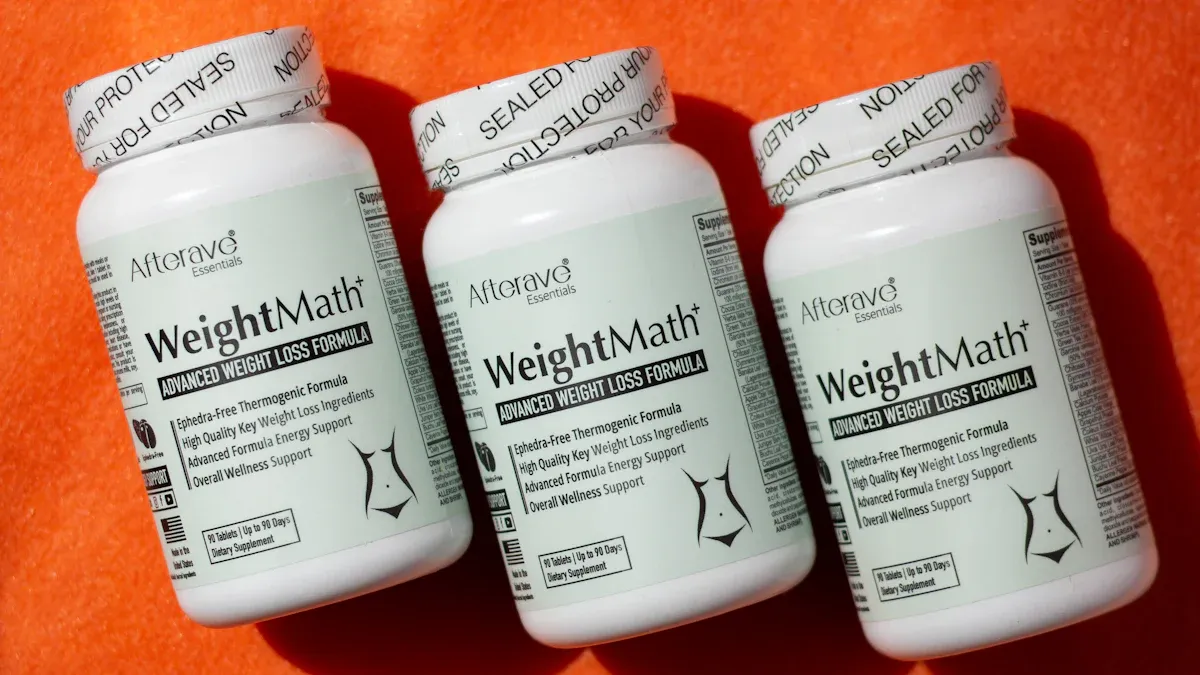
Short-Term Effects
You might start to notice some changes soon after you begin taking vitamins. Many people feel a boost in energy or a better mood within the first few weeks. Sometimes, you can even feel less tired or less stressed just hours after taking your supplement. If you have been low on certain vitamins, these early changes can feel pretty dramatic.
You may notice you feel less irritable, more focused, or just a bit brighter during your day. These are good signs your body is responding.
Here’s a quick look at how fast some vitamins can work:
| Vitamin | What You Might Notice | When You Might Notice It |
|---|---|---|
| Vitamin B6 | More energy, better mood | 1–3 weeks |
| Vitamin B12 | Less tired, stronger muscles | A few weeks |
| Vitamin C | Better mood, more energy | 1–2 weeks |
| Multivitamins | Less stress, sharper thinking | Hours to weeks |
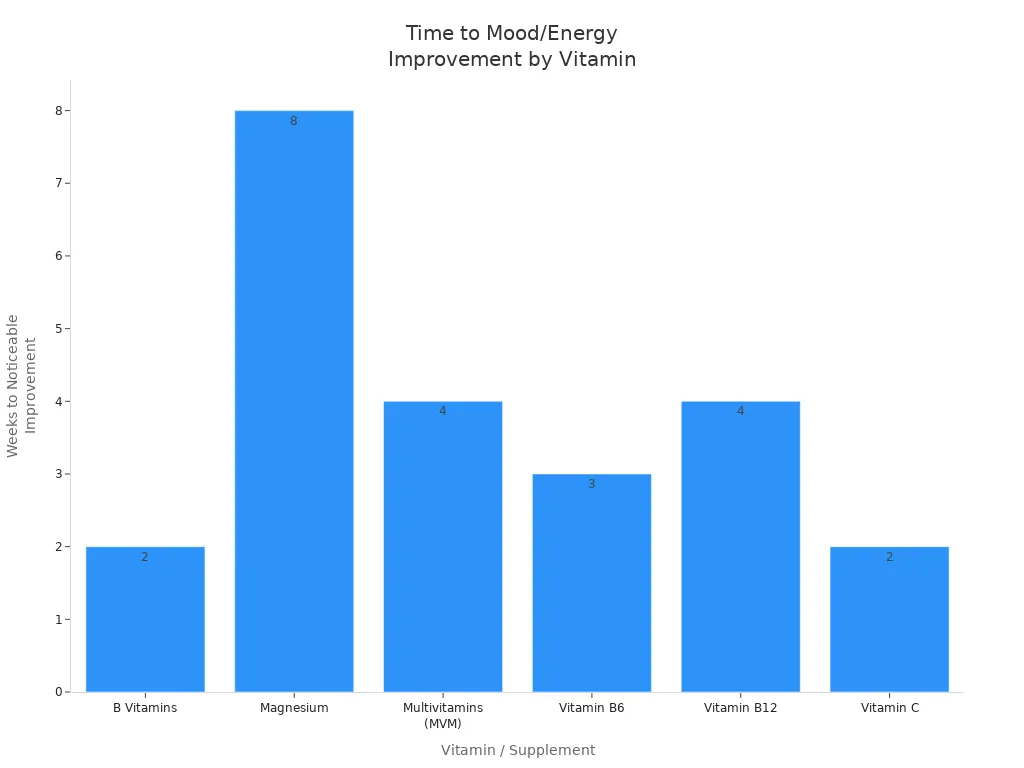
Medium-Term Effects
After a month or two, you may see even more changes. If you started out with a deficiency, you might notice less muscle pain, fewer aches, and better sleep. Your body could feel stronger, and you might get sick less often. In children, regular vitamin A can lower the risk of serious illness and even save lives.
- Adults with low vitamin D often feel less tired and achy after a couple of months.
- Some vitamins help your body fight off infections and recover faster.
- In the past, vitamin programs wiped out diseases like rickets and goiters in many countries.
If you keep up your routine, you’ll likely see steady improvements in how you feel and function.
Long-Term Effects
Some benefits take longer to show up. Stronger bones and a healthier immune system can take months or even years to build. Studies show that taking vitamin D over time can lower your risk of dying from any cause. However, not all vitamins prevent every disease.
| Health Outcome | Linked to Vitamin D Supplementation? |
|---|---|
| Lower risk of death | Yes |
| Alzheimer’s | No |
| Hypertension | No |
| Type 2 diabetes | No |
🕒 Remember, some changes—like stronger bones—take patience. Stick with your vitamins, and you’ll set yourself up for better health in the long run.
Tips for Getting the Most from Vitamins
Consistency Matters
You might wonder why you need to take your vitamins every day. The answer is simple: your body works best when it gets a steady supply of nutrients. If you skip days, you may not get the full effectiveness from your supplements. Here’s what research shows about staying consistent:
- People who eat vitamin-rich foods or take vitamins regularly often have better health.
- Consistent vitamin intake can lower the risk of heart disease, stroke, and some cancers.
- Fixing a vitamin deficiency with steady use can help you feel better and even cure some health problems.
- High doses of vitamins do not always mean better results. Sometimes, too much can even be harmful.
- The best way to get vitamins is through a balanced diet with lots of fruits and vegetables.
🗓️ Tip: Set a daily reminder or keep your vitamins in a spot you see every morning. This helps you stay on track and boosts the effectiveness of your routine.
With or Without Food
You may ask, “Should I take my vitamins with food or on an empty stomach?” The answer depends on the type of vitamin.
- Fat-soluble vitamins (A, D, E, K) work best when you take them with meals that have healthy fats, like nuts or avocado.
- Water-soluble vitamins (C and B) can be taken with or without food. If they upset your stomach, try taking them with a meal.
- Minerals such as calcium, magnesium, and zinc are easier on your stomach and absorb better with food.
- Iron absorbs best on an empty stomach with vitamin C, but food can help if it makes you feel sick.
🍊 Try pairing vitamin C-rich foods, like oranges, with iron-rich foods, such as spinach, to help your body use iron better.
Consult a Professional
You might think all vitamins are safe, but everyone’s needs are different. Some people need more of certain vitamins because of age, health, or diet. A healthcare provider can help you choose the right vitamins and avoid taking too much.
- Ask your doctor or a dietitian before starting new supplements, especially if you take medicine or have health problems.
- Some vitamins and minerals can interact with each other or with your medications.
- Professionals can give you tips on timing, food pairing, and the best way to boost the effectiveness of your vitamins.
👩⚕️ Remember, getting advice from a professional helps you get the most benefit and keeps you safe.
You now know water-soluble vitamins can work in days or weeks, while fat-soluble ones may take months. Staying consistent and fixing deficiencies helps you see results. Keep your expectations realistic and remember these key points:
- Most healthy adults do not need supplements unless a doctor recommends them.
- Some groups, like pregnant women or older adults, benefit from targeted vitamins.
- Taking vitamins with food, especially fat-soluble ones, boosts absorption.
- Too much of some vitamins can be harmful.
Talk with your healthcare provider before starting new supplements. Personalized advice keeps you safe and helps you get the most from your vitamins.
FAQ
How can I tell if my vitamins are working?
You might feel more energetic or notice your mood improving. Sometimes, your skin looks brighter or you get sick less often. Keep track of how you feel each week. Small changes mean your vitamins are starting to help.
Should I take vitamins in the morning or at night?
You can take most vitamins any time. Many people choose mornings so they remember. Fat-soluble vitamins work best with meals that have healthy fats. If a vitamin upsets your stomach, try taking it with food.
Can I take all my vitamins at once?
You can take most vitamins together. Some work better when you space them out. For example, calcium and iron compete for absorption. Ask your doctor for advice if you take many supplements.
What happens if I miss a day?
Missing one day usually does not hurt. Just take your next dose as normal. Staying consistent helps your body get the most benefit. Set a reminder or keep your vitamins where you see them.

Poseidon
Master of Nutritional Epidemiology, University of Copenhagen, Herbal Functional Nutrition Researcher
Focus: The scientific application of natural active ingredients such as Tongo Ali, Horny Goat Weed, and Maca to sexual health and metabolic regulation.
Core Focus:
Men: Use a combination of Tongo Ali (an energizing factor) + Maca (an energy reserve) to improve low energy and fluctuating libido.
Women: Use a combination of Horny Goat Weed (a gentle regulator) + Maca (a nutritional synergist) to alleviate low libido and hormonal imbalances.
Stressed/Middle-Aged Adults: This triple-ingredient synergy supports metabolism, physical strength, and intimacy.
Product Concept:
Based on traditional applications and modern research (e.g., Tongo Ali promotes testosterone-enhancing enzyme activity, and icariin provides gentle regulation), we preserve core active ingredients and eschew conceptual packaging—using natural ingredients to address specific needs.
Simply put: I'm a nutritionist who understands "herbal actives." I use scientifically proven ingredients like Tongo Ali, Epimedium, and Maca to help you make "sexual health" and "nutritional support" a daily routine.
